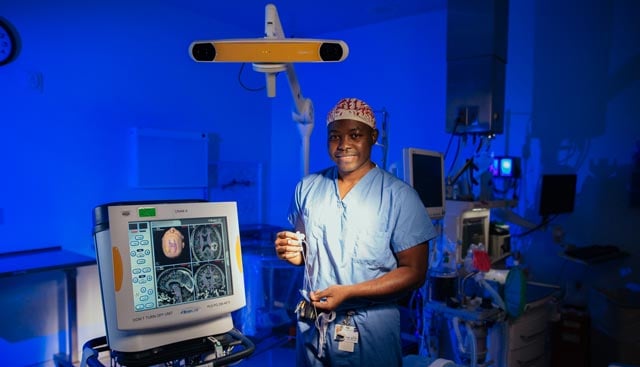What Should I Expect With a Craniectomy?

If you’ve been diagnosed with brain cancer, your oncologist may recommend a craniectomy to relieve pressure on your brain. This is a surgical procedure that is usually done as part of a resection to remove cancerous tissues. To access the brain, a small part of your skull (a bone flap) will be removed. If the bone flap is put back in place at the end of the operation, the procedure is known as a craniotomy. If the bone flap is not put back in place until later, the procedure is known as a craniectomy.
Replacing a bone flap after a craniectomy
Craniectomies are temporary, which means that you’ll eventually have another surgery to put the bone flap back in place. The amount of time that the bone flap is left out will depend on a number of factors, such as the amount of swelling in your brain, how quickly the swelling goes down and how soon you recover from your craniectomy. Your bone flap replacement surgery could be scheduled within several days or weeks. Until your second surgery, your bone flap will be preserved in a sterile environment.
Craniectomy recovery
Until your bone flap is put back in place, you’ll need to be especially careful to avoid any activities that could lead to a head injury. Your treatment team may recommend that you temporarily wear a special helmet to protect the part of your brain that is not covered by your skull.
While you recover from your craniectomy, you’ll also want to:
- Have someone else take you to your appointments until your surgeon has cleared you for driving
- Avoid lifting heavy objects and performing manual labor
- Avoid consuming alcoholic beverages and tobacco products
At Moffitt Cancer Center, we provide our patients with the comprehensive education and support that they need throughout the brain tumor treatment process. Craniotomies and craniectomies are performed by our experienced brain cancer surgeons, who use the newest and most effective techniques to achieve the best possible outcomes.
If you’d like to talk with an oncologist in our Neuro-Oncology Program about what you can expect from a craniectomy, call 1-888-663-3488 or submit a new patient registration form online to request an appointment. You do not need a physician’s referral to do so.
